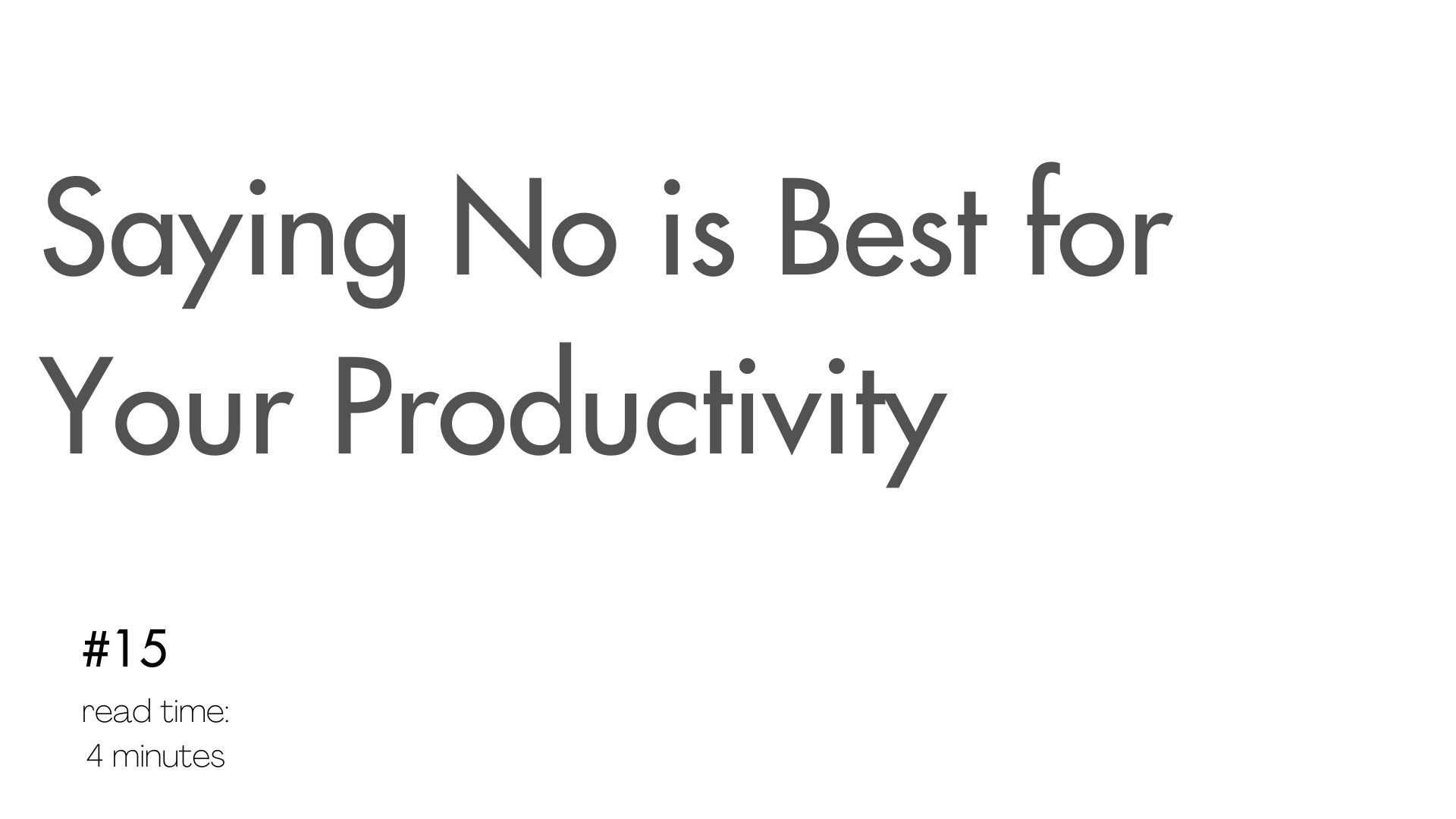In the world of freelancing, digital work, and entrepreneurship, opportunities often seem endless. Every new client, project, or request might appear as a chance to grow your business or expand your portfolio.
But here’s the truth: saying yes to everything can be one of the biggest productivity killers.
Learning to say no is one of the most powerful skills you can develop as a professional. It helps you maintain focus, avoid burnout, and prioritize what truly matters.
Let’s explore why saying no is essential for your productivity and how you can master the art of it.
Why Saying No Boosts Productivity
At first, turning down opportunities might feel counterintuitive, especially when you’re trying to build a career or business.
However, saying no is not about missing out- it’s about making room for what truly matters.
By saying no, you:
- Protect Your Time: Every yes requires time and energy, which are finite resources. Saying no helps you allocate your time to the most impactful tasks.
- Maintain Focus: Too many commitments can scatter your focus, leading to poor performance across the board. Saying no keeps you laser-focused on your key priorities.
- Avoid Burnout: Overcommitting can quickly lead to burnout, which ultimately harms your productivity and well-being. Saying no helps maintain a healthy work-life balance.
How to Say No Effectively
Knowing when and how to say no can be challenging, especially if you’re used to being accommodating. But with practice, you can develop strategies that make it easier to turn down requests without feeling guilty.
1. Clarify Your Priorities
- Understand what’s most important to your goals—whether it’s growing your business, improving your skills, or maintaining a balanced life.
- Use these priorities as a filter for deciding what to say yes or no to.
2. Be Polite but Firm
- Saying no doesn’t have to be harsh. A polite yet firm response shows professionalism and respect while still protecting your time.
- Example: “Thank you for thinking of me, but I’m currently focusing on existing projects and won’t be able to take this on.”
3. Offer Alternatives
- If you feel bad about turning someone down, consider offering an alternative. This could be referring them to another professional or suggesting a different time when you might be available.
Tips from Us: Mastering the Art of Saying No
Tip 1: Use a Decision-Making Framework
Before agreeing to any request, ask yourself: Does this align with my goals? Do I have the capacity for this? If the answer is no, then the request should also get a no.
Tip 2: Practice Saying No
It might feel uncomfortable at first, but like any skill, saying no gets easier with practice. Start with smaller requests and gradually build your confidence.
Tip 3: Embrace the Power of a Pause
Don’t feel pressured to respond immediately to every request. Taking a moment to think before you answer gives you the space to consider whether the opportunity truly aligns with your goals.
Tools to Help You Say No
In addition to practicing the art of saying no, certain tools can help you manage your commitments and protect your time:
- Dobror: This zero-distraction email client helps you manage your inbox efficiently, making it easier to identify and respond to the most important emails.
- Todoist: A task management app that allows you to prioritize tasks and deadlines, making it easier to say no to low-priority requests.
- RescueTime: A time-tracking tool that provides insights into how you spend your time, helping you make informed decisions about what to take on and what to decline.
The Benefits of Saying No
Saying no can feel like a risk, especially if you’re worried about missing opportunities or disappointing others. But the benefits far outweigh the temporary discomfort:
- Enhanced Focus: By declining distractions, you can dedicate your full attention to the tasks that drive your business forward.
- Better Quality Work: With fewer commitments, you can deliver higher-quality work on the projects you do take on.
- Increased Satisfaction: Working on tasks that align with your goals leads to greater fulfillment and motivation.
Conclusion: The Power of No
Saying no isn’t just a productivity hack—it’s a life skill. It’s about taking control of your time, setting boundaries, and ensuring that your work reflects your highest priorities.
In the end, saying no opens the door to saying yes to the things that truly matter. As a freelancer, digital nomad, or entrepreneur, mastering this skill can lead to a more focused, productive, and fulfilling career.
